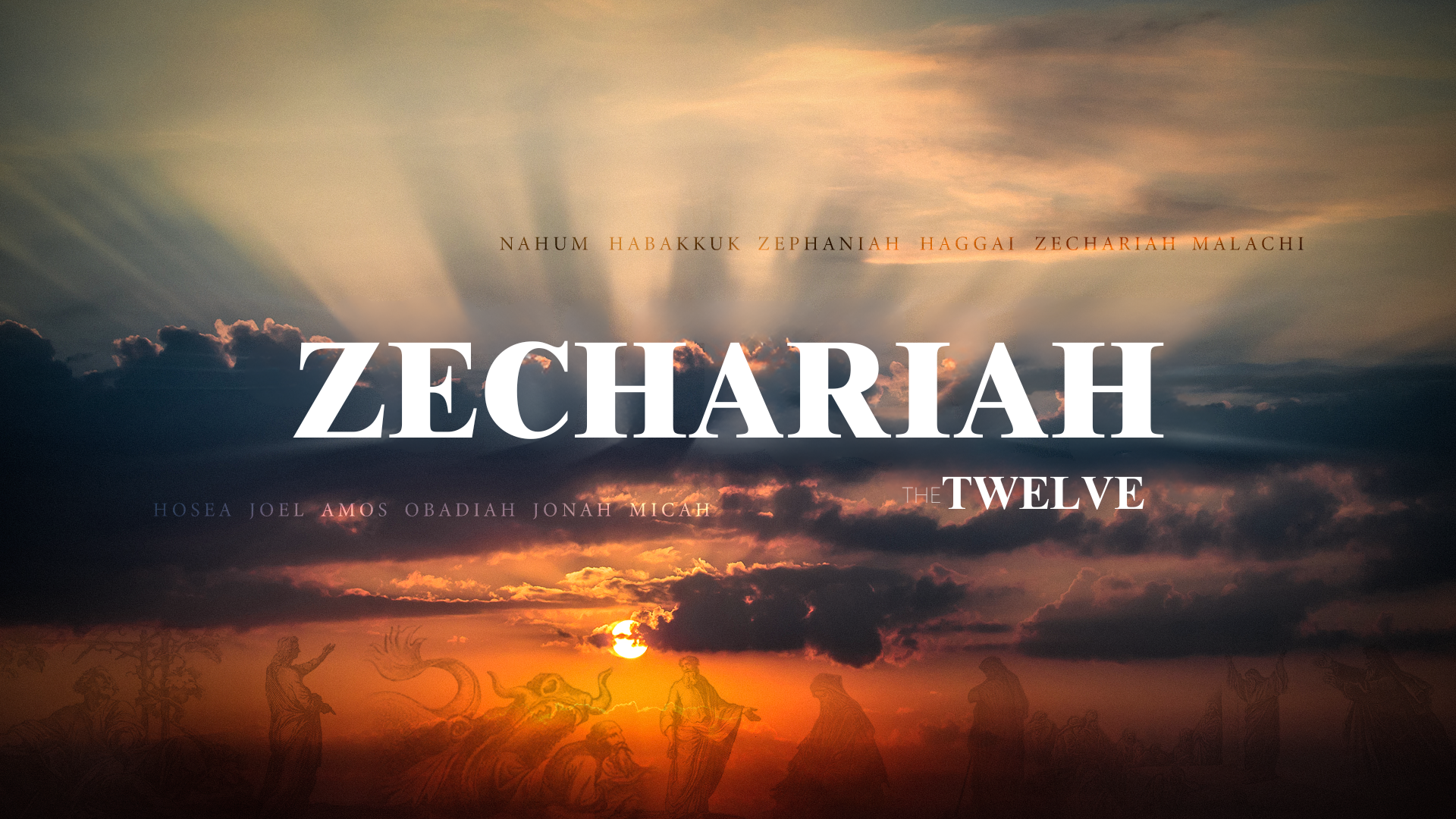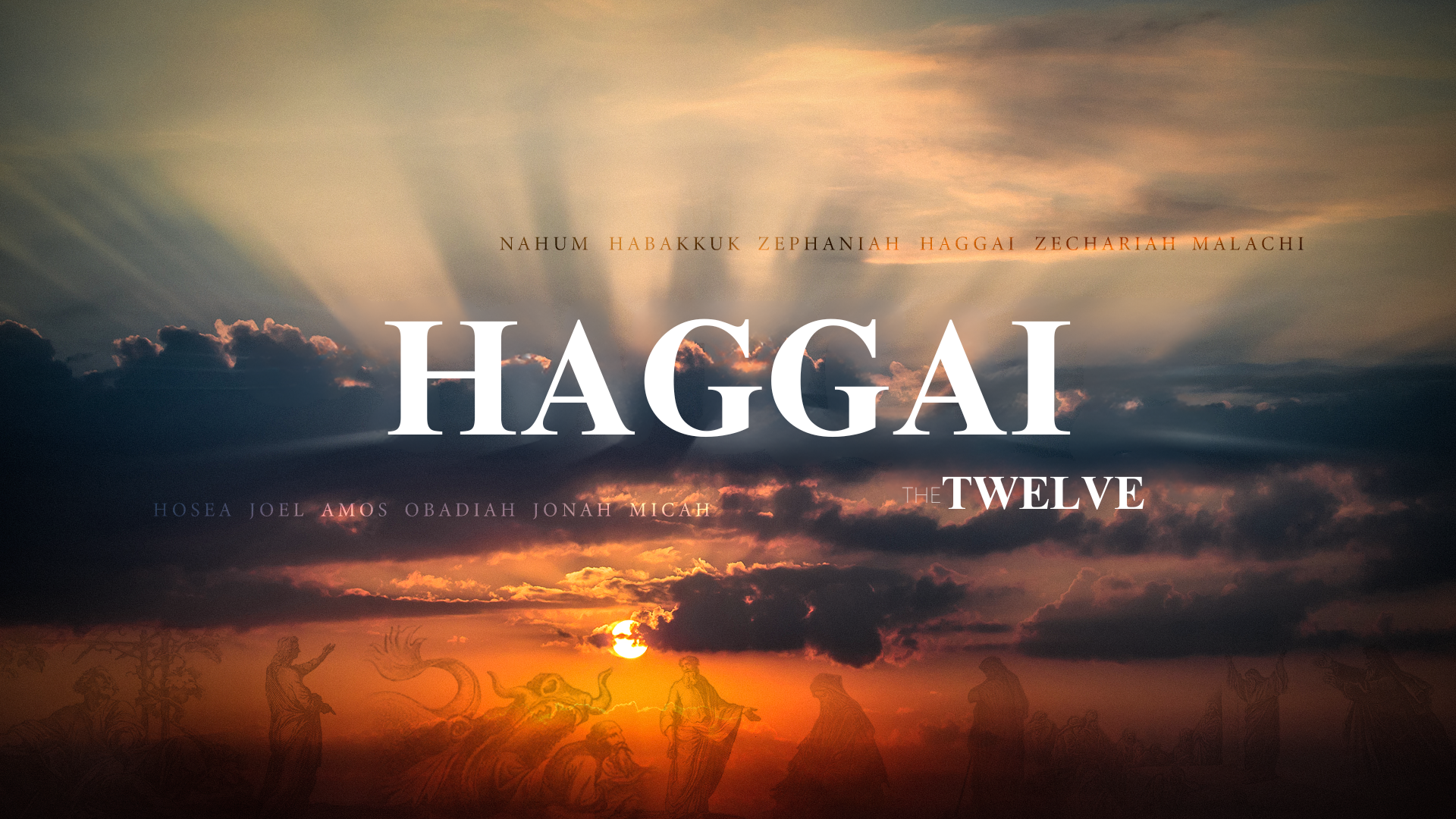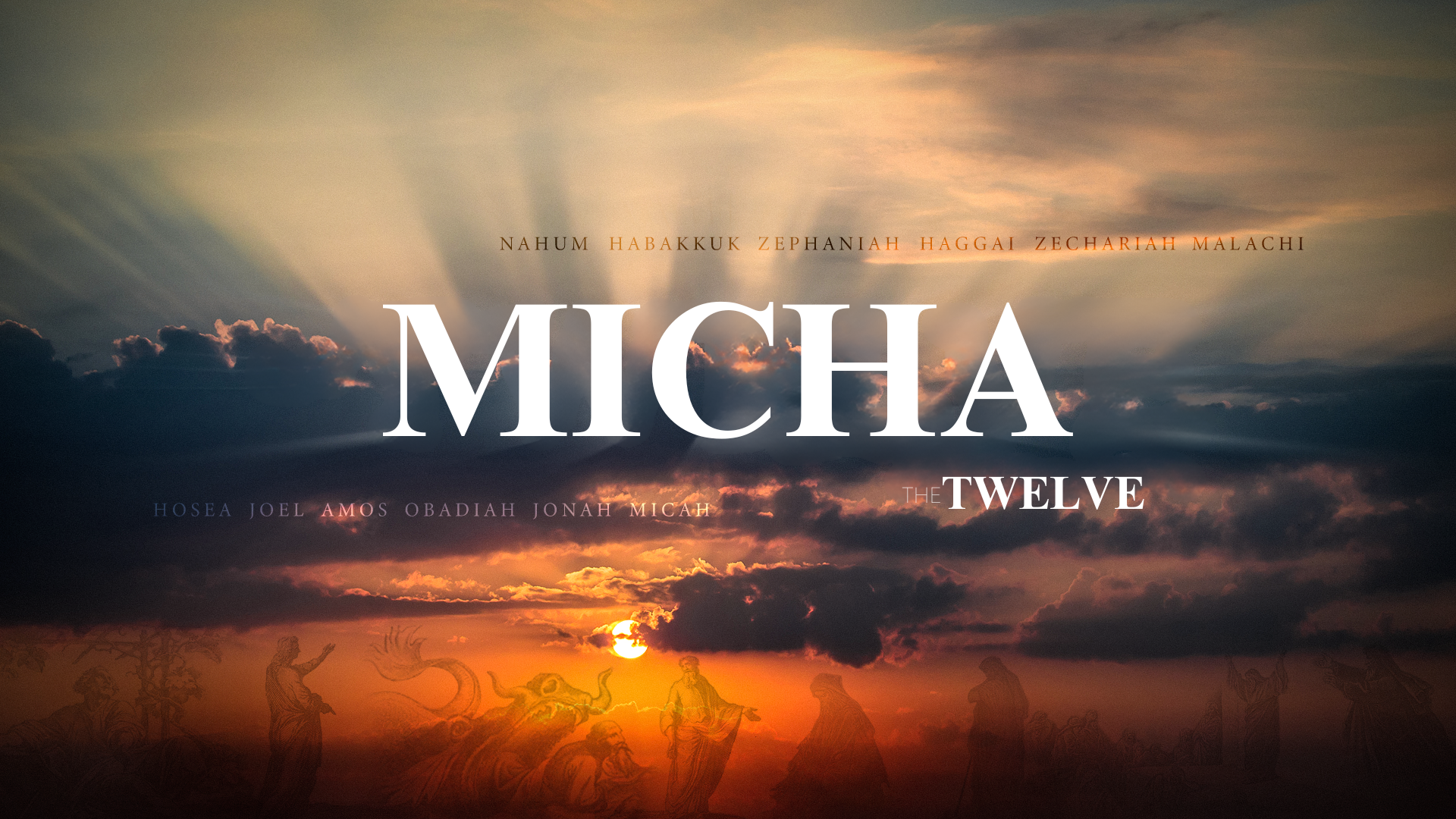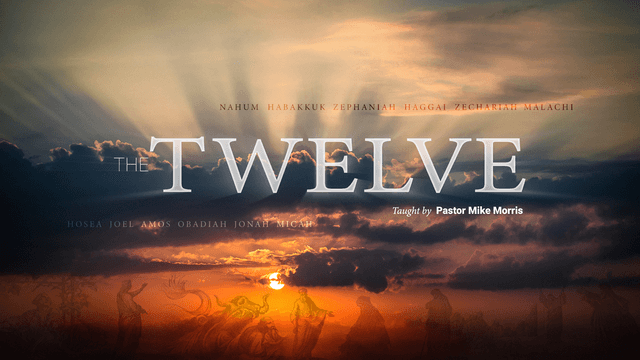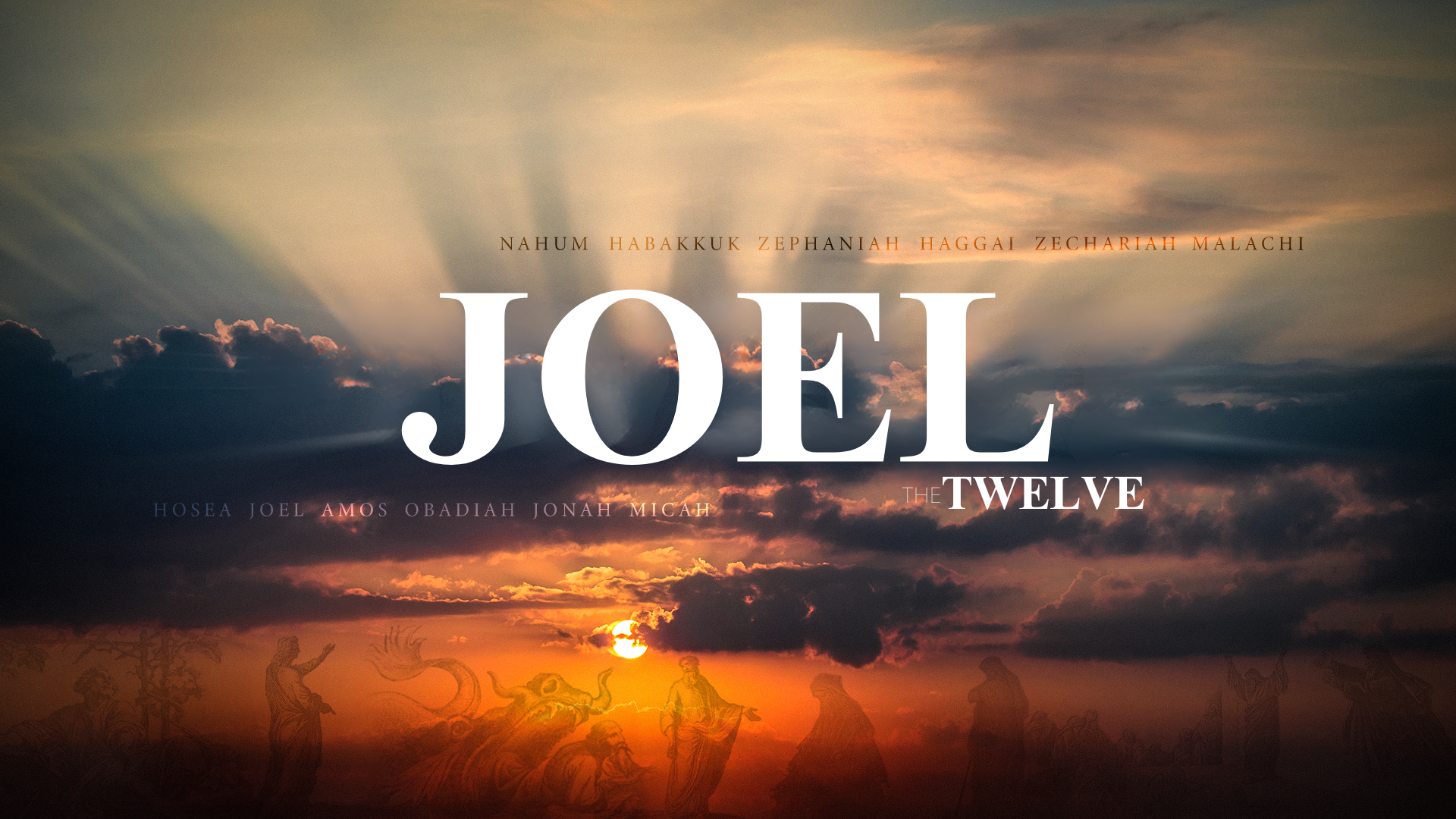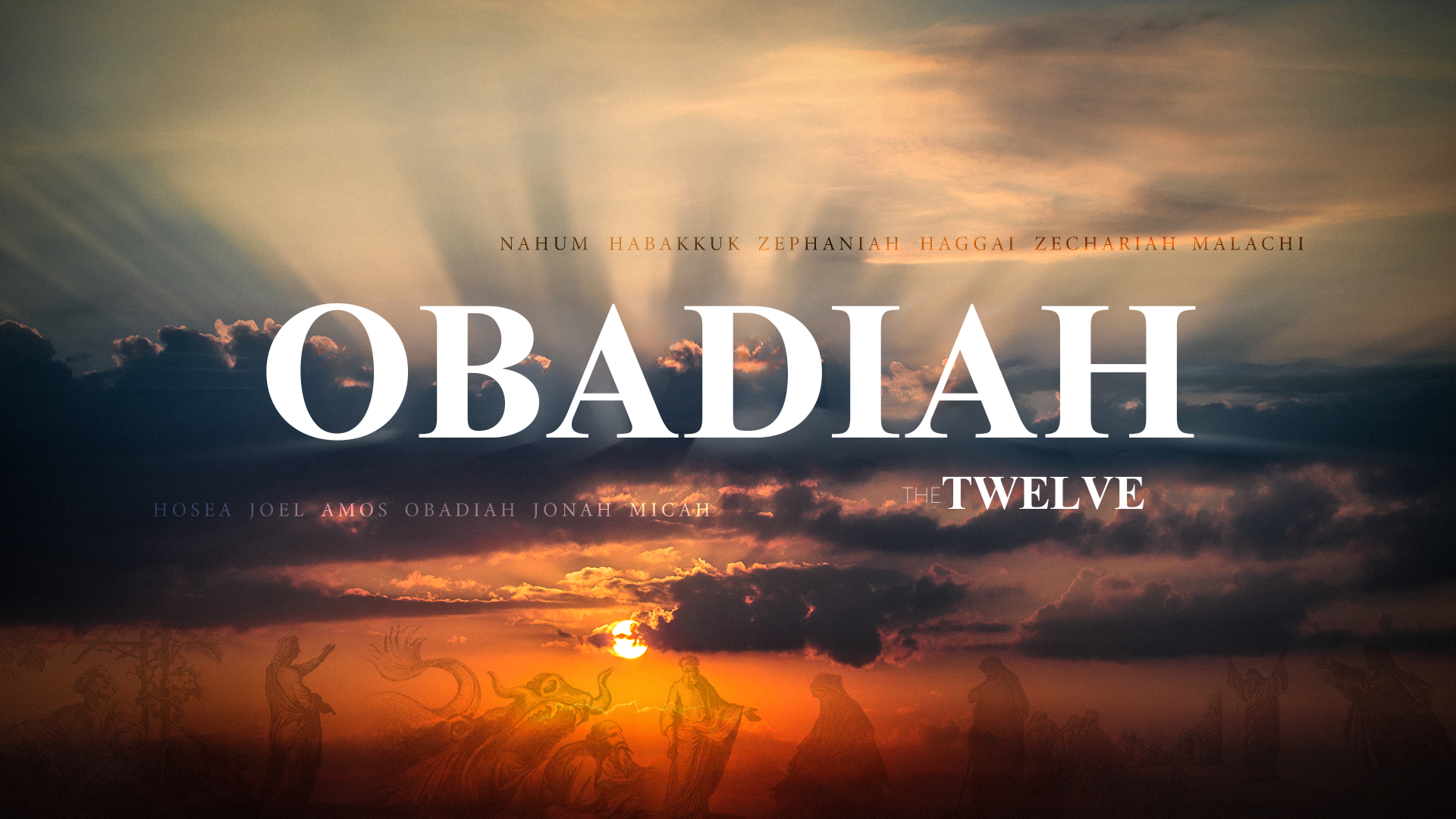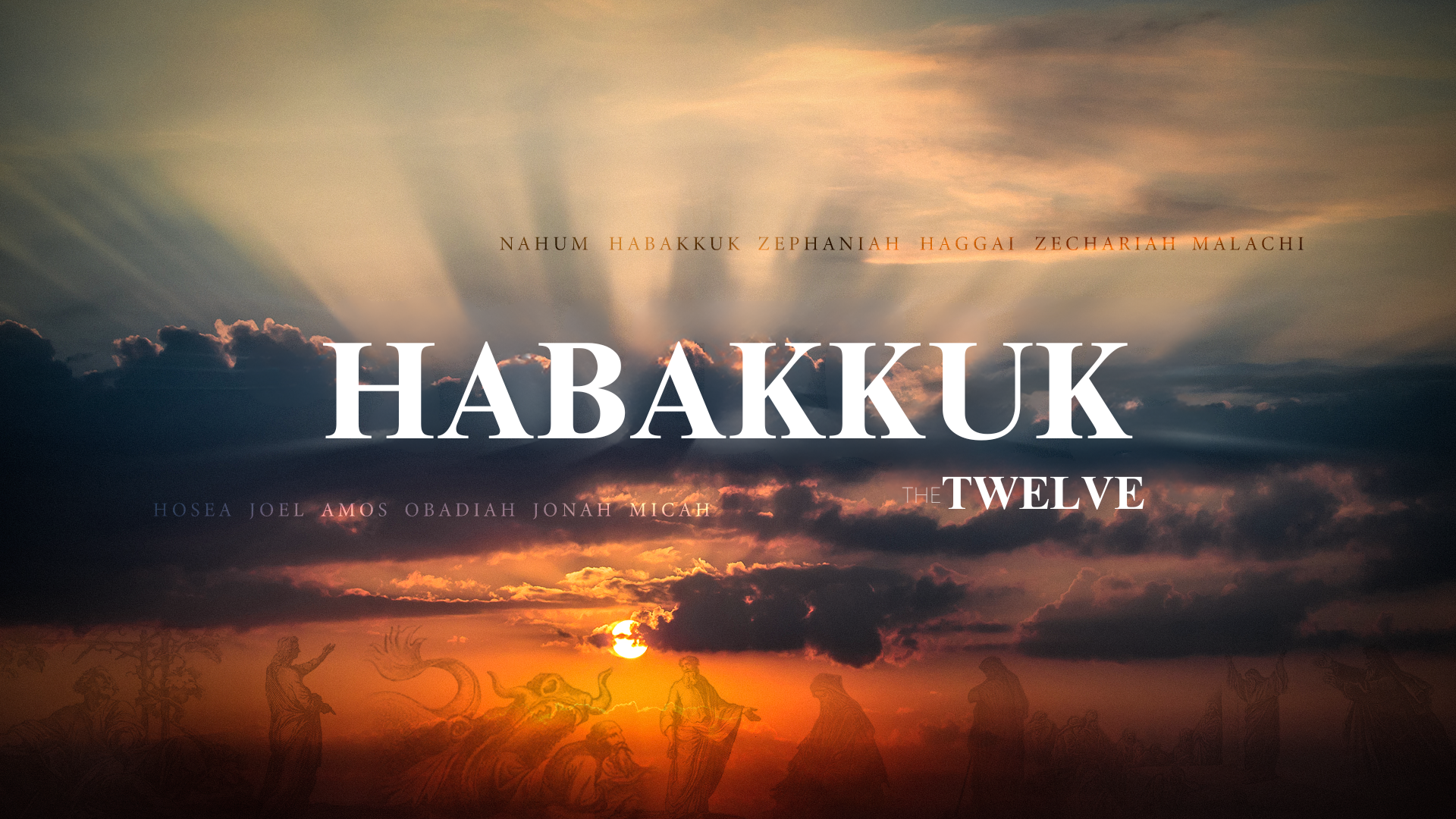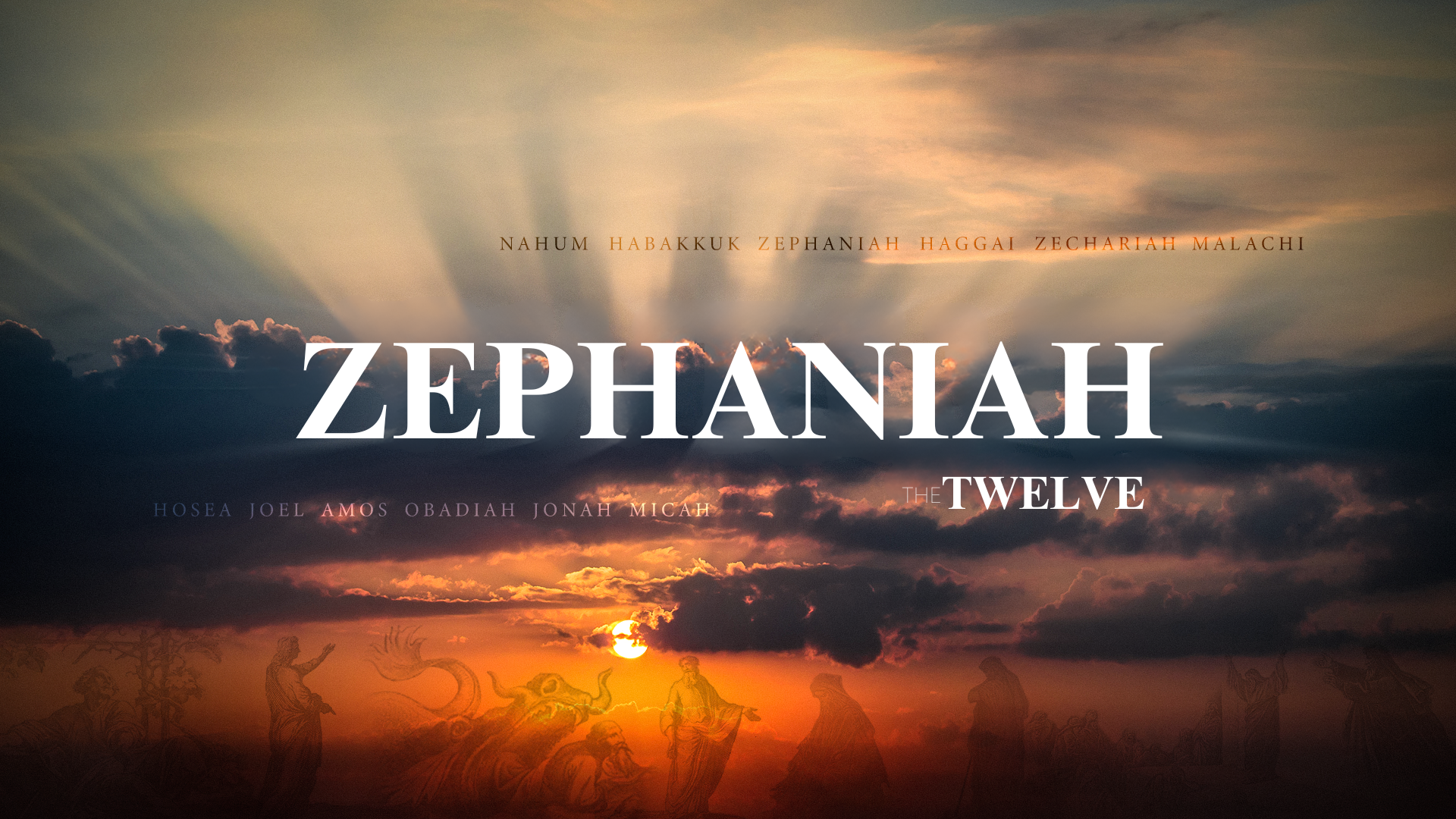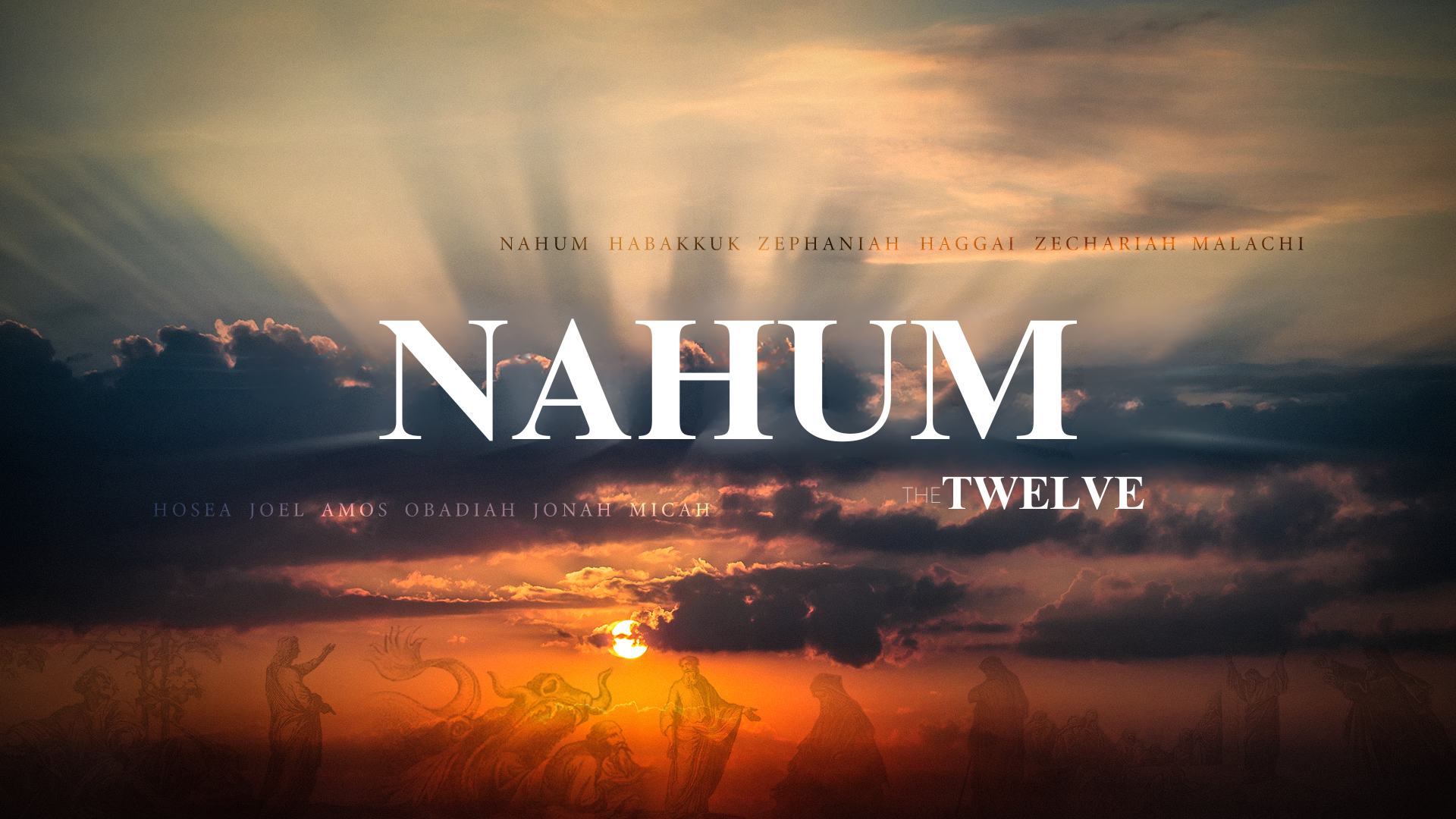MANUSCRIPT
Welcome back as we continue our study of The Twelve...
Let’s recall the context -- northern kingdom of Israel; 760 BC, just 20 years before the beginning of the deportation of Israel into exile in the farthest reaches of the Assyrian Empire…most of the people hearing the prophecies of Amos would experience the siege and exile, except for perhaps the oldest Israelites...so this is getting personal...
SLIDE 1 -- ISRAEL IN THE PERIOD OF THE TWELVE
We recall last week from chapter five that Amos concluded the covenant lawsuit messages -- chapters three through five -- with a searing rebuke of the idolatry and unjust practices of the wealthy against the poor...God’s final offer of “Seek Me and live” is largely going to be ignored by the northern kingdom, as will His command to “let justice roll down like waters and righteousness like an ever-flowing stream”... following those three chapters, Amos begins to declare the coming judgment of God in a more specific way using the word “woe” and the message also transitions from strictly an oracle to also include visions
Let’s dive into the text...today we’ll be covering chapters six and seven, both of which are fairly short, but important in the way they add to the prophetic message...we’ll begin at chapter six verse one
Amos 6.1
6 “Woe to those who are at ease in Zion,
and to those who feel secure on the mountain of Samaria,
the notable men of the first of the nations,
to whom the house of Israel comes!
Amos speaks again to the wealthy and powerful of Israel, beginning with the word “woe” -- defined as “great sorrow or distress”
What characterizes these people upon whom Amos pronounces the judgment of God? Two traits emerge from this chapter
• Complacency...note the identification of the guilty here...”those who are at ease” -- “those who feel secure” -- you Bible students will observe that here, Amos expands the prophetic message from only Israel to include Judah as well with the use of the word “Zion,” another name for the capital city of Jerusalem...but in both cases, the condemnation is clear...tragedy and suffering will come upon both nations, especially to those who believe all is well and that they are secure in their positions of wealth and authority...it’s remarkable, isn’t it, how often the Lord will bring judgment to the world, and adversity to the believer, at the moment when they might think it is furthest from them...when we’re most comfortable in the world, God intrudes with suffering
• Pride...the original sin and still the most significant and damaging sin there is...all sin separates us from God, but pride is the one that most quickly drives a wedge between a person and Almighty God...when a person holds a high view of self, without fail, they also hold a low view of God...hear Amos’s words...they were “notable men” -- “the first of the nations” -- that was evidently how the rich and powerful saw themselves...we’re familiar with the fall of Satan in Isaiah 14.12-14... in a passage otherwise taunting the leader of Babylon, the focus turns to one who has fallen from heaven...listen for the five “I will” statements...the heart of pride...
“How you are fallen from heaven,
O Day Star, son of Dawn!
How you are cut down to the ground,
you who laid the nations low!
13 You said in your heart,
‘I will ascend to heaven;
above the stars of God
I will set my throne on high;
I will sit on the mount of assembly
in the far reaches of the north;
14 I will ascend above the heights of the clouds;
I will make myself like the Most High.’
...that’s what pride sounds like...when you begin thinking of yourself more highly than you should, when you understand people, things, and events around you only through the lens of what they mean to you...when your focus is predominantly on yourself...you have fallen into the sin of pride
Let me remind you of I Peter 5.5b: “God opposes the proud, but gives grace to the humble.” Humility must characterize Christ-followers...
One word of application: if right now you’re thinking of someone else and thinking how much this applies to him or her...let me urge you to turn your gaze inward and search your own heart to see if the Spirit is pointing out the issues of pride or complacency in you...
To make his point that Israel cannot rely on themselves and their pride, Amos reminds them of a hard truth: Assyria has already defeated and destroyed other nearby cities...
2 Pass over to Calneh, and see,
and from there go to Hamath the great;
then go down to Gath of the Philistines.
Can you save yourselves as these could not?
Are you better than these kingdoms?
Or is their territory greater than your territory,
3 O you who put far away the day of disaster
and bring near the seat of violence?
...Calneh’s is likely an alternative spelling of Calno, a Syrian city north of Israel; Hamath, a strategically placed city north of Israel, important to the north-south trade routes, frequently mentioned in the OT; and Gath, a Philistine city, already conquered by Assyria and thus not mentioned in Amos 1...the common thread was that all these cities had already fallen to Assyria
Now Amos asks a sobering question: can you, O Israel, in your own strength, save yourselves, while these other cities could not? Are you better? Stronger? Or should their destruction reveal to you your own weakness and vulnerability? The phrase “put far away” is a Hebrew word meaning to disbelieve something...apparently the people, particularly the leaders, of Israel did not yet believe the prophetic message of judgment...they did not believe the disaster prophesied by Amos could possibly come to pass...
Amos now turns to further statements of woe based on the pride and greed of Israel...
Woe to the rich and proud who do not know how to grieve any longer over sin and destruction!
4 “Woe to those who lie on beds of ivory
and stretch themselves out on their couches,
and eat lambs from the flock
and calves from the midst of the stall,
5 who sing idle songs to the sound of the harp
and like David invent for themselves instruments of music,
6 who drink wine in bowls
and anoint themselves with the finest oils,
but are not grieved over the ruin of Joseph!
What a vivid picture of idle luxury...and Amos contrasts their selfish pre-occupation with the spiritual and ethical decay and destruction of the nation...as long as they are able to live in the luxury of homes of hewn stone and the finest furniture and food, they care nothing for the suffering and devastation of their people...they cared about music, food, and much wine...
And now, to quote the theologian Willie Nelson, “Turn out the lights, the party’s over...” ...God is about to bring judgment upon Israel...
7 Therefore they shall now be the first of those who go into exile,
and the revelry of those who stretch themselves out shall pass away.”
8 The Lord God has sworn by himself, declares the Lord, the God of hosts:
“I abhor the pride of Jacob
and hate his strongholds,
and I will deliver up the city and all that is in it.”
In similar language as chapter 5, the Lord God pledges to bring Israel to destruction...those who saw themselves as the “first of the nations” will instead be the first to go into exile...
But I want to highlight something here...the statement “The Lord God has sworn by himself...”
This phrase (in either of two forms) isn’t used often in Scripture...only five times...but it’s very significant when the Lord God not only swears, but says that He swears by Himself, indicating that He is making a promise based on His own character and honor and Name...once in Genesis 22 He uses the phrase to promise blessing to Abraham at the near-sacrifice of Isaac; once in Isaiah 45 when He promised that “every knee would bow and every tongue pledge allegiance” to Him; and three times to promise judgment, once to Babylon in Jeremiah 51, once to Edom in Jeremiah 49, and here in Amos...to His own people, Israel...
If those in power in Samaria weren’t yet convinced about the Lord God’s firm intent to bring judgment upon them, this statement should remove all doubt
Then we see a curious illustration to emphasize the certainty of judgment...the Lord God pictures the aftermath of the judgment, as the few survivors struggle to bury the dead...
9 And if ten men remain in one house, they shall die. 10 And when one's relative, the one who anoints him for burial, shall take him up to bring the bones out of the house, and shall say to him who is in the innermost parts of the house, “Is there still anyone with you?” he shall say, “No”; and he shall say, “Silence! We must not mention the name of the Lord.”
The picture is this: two survivors are searching for their dead family members, and the one outside calls to the one in the house...the words suggest a collapsed house and that one has had to dig into rubble...”are there any survivors?” The answer comes back, “No...and don’t speak Yahweh’s Name, we don’t want to invoke His presence lest we bring more judgment on ourselves...” ...that’s how far Israel had fallen...they would not even speak His Name
11 For behold, the Lord commands, and the great house shall be struck down into fragments,
and the little house into bits.
If you recall Amos 1.1, this oracle references “the earthquake in the days of Uzziah king of Judah” ... this prophecy appears linked to that earthquake, as do Amos 8.8 and 9.1
Amos continues...
12 Do horses run on rocks?
Does one plow there with oxen?
But you have turned justice into poison
and the fruit of righteousness into wormwood—
13 you who rejoice in Lo-debar,
who say, “Have we not by our own strength
captured Karnaim for ourselves?”
Oppression will extend from the same points as the land they had occupied (I Kings 14?)
14 “For behold, I will raise up against you a nation,
O house of Israel,” declares the Lord, the God of hosts;
“and they shall oppress you from Lebo-hamath
to the Brook of the Arabah.”
Amos returns to questioning Israel...the answer to the two questions is an obvious “no” -- but in contrast, Israel is guilty of Amos’s accusations regarding the lack of justice...and he speaks with biting sarcasm in verse 13, as he intentionally misspells the name of a northern Israel town, Lo-debar, to instead spell the Hebrew word for “nothing” -- you who rejoice in that which is “nothing” -- and mocking Israel also with the meaning of the name “Karnaim” meaning “double-horned” as they claimed to have conquered an exceptionally strong town “by their own strength”
In truth, Israel will be oppressed throughout the entire extent of their territory...Jeroboam II extended the Israelite borders as Jonah predicted...II Kings 14.25
25 He restored the border of Israel from Lebo-hamath as far as the Sea of the Arabah, according to the word of the Lord, the God of Israel, which he spoke by his servant Jonah the son of Amittai, the prophet, who was from Gath-hepher.
But now the Lord God is going to flip the tables on Israel...all that they had once owned and controlled would now be given over to their oppressors, the dreaded Assyrians...
Now as we turn to chapter 7, we encounter something new -- the type of prophecy changes from the form of an oracle to the form of a vision -- three visions, to be exact -- as the introduction changes from “the words of Amos” to “this is what the Lord God showed me”
And we also turn from the prophecy back to the story of the prophet, as Amos himself faces opposition from the religious elite in the nation...as you would expect, the message of the prophet was not popular, especially among the rich and powerful hearing his message of sin, guilt, and judgment...now the enemies start to come out...
Before we get to the text of chapter 7, let’s set the stage with an overview of this visionary portion of the book...it has been hinted at even back in Amos 1.1...
The words of Amos...which he saw concerning Israel
The visions number five in total -- three in chapter 7, one in chapter 8, and one in chapter 9
They are intensely personal...Amos uses personal pronouns in each instance...in 7.1, 7.4, 7.7, and 8.1 he says “This is what the Lord God showed me” -- similarly, in 9.1, Amos simply says “I saw”
They progress in something of a sequence, and are arranged in two pairs, followed by a final, devastating vision of judgment
The first two, in the early part of chapter 7, are fairly straightforward -- there is a clear vision of divine judgment, Amos begs God to relent, and God does relent...you could understand these as event-based...Amos speaks first, then God responds
The second two, in the middle part of chapter 7 and the early part of chapter 8, are alike in that they are not event-based, but object-based...God shows Amos an object, then speaks first, asking the prophet what he sees...Amos responds, and God explains or interprets the vision to Amos’s understanding...this pair don’t depict a judgment but something of the reason for the judgment, and the certainty that God will execute that judgment
The fifth vision, in chapter 9, is unlike any of the previous four...the focus of the vision is not an event or an object, but simply Yahweh Himself...Amos experiences this vision through hearing...he sees the Lord, but then hears the words, without any further experiences of sight...the vision ends with a resolute statement of judgment from the Lord God
Let’s look at vision #1 -- starting at Amos 7.1
7 This is what the Lord God showed me: behold, he was forming locusts when the latter growth was just beginning to sprout, and behold, it was the latter growth after the king's mowings. 2 When they had finished eating the grass of the land, I said,
“O Lord God, please forgive!
How can Jacob stand? He is so small!”
3 The Lord relented concerning this: “It shall not be,” said the Lord.
This would be a devastating judgment...locusts were greatly feared in ancient times, and still today in some parts of the world...we see the sovereignty of God throughout this passage, as we will in all the visions...here, it is evident as God is the One “forming” locusts...He is specifically preparing this invasion to bring judgment on rebellious Israel
Worse yet was the timing...the “king’s mowings” were the first cut of the grass, used as fodder for the royal livestock...following that first mowing came the latter growth, in late spring, which would go to the people for their livestock...if locusts fell upon the land after the first mowing but before the second, it would be unbearable for the people...they and their livestock would be severely threatened, if not destroyed
All the judgment was displayed by God to Amos’s sight...he sees them finish eating the grass of the land (v 2), after which Amos speaks
“O Lord God, please forgive!
How can Jacob stand? He is so small!”
What is Amos’s plea? “Please forgive!” Why? Because Amos understood the plague of locusts to be directly associated with the sins of Israel...in his hope to persuade God to relent from bringing the judgment, Amos gets at the true issue -- unrepentant sin
Also, he makes this appeal strictly on the basis of God’s compassion...there’s no mention of the glory of God’s Name, or the special covenant relationship enjoyed by Israel...only a clear appeal for mercy
Amos references a very early name for the people, referring to them as Jacob, Abraham’s grandson and the third patriarch of the Jewish people, again appealing to God’s compassion by the statement that such a small nation could never withstand so great a judgment
God in His mercy does relent...but notably He does not speak a word of forgiveness over the people...He simply -- and sovereignly -- says “It shall not be”
The second vision is similar...
4 This is what the Lord God showed me: behold, the Lord God was calling for a judgment by fire, and it devoured the great deep and was eating up the land. 5 Then I said,
“O Lord God, please cease!
How can Jacob stand? He is so small!”
6 The Lord relented concerning this: “This also shall not be,” said the Lord God.
A different judgment this time, but equally devastating, perhaps even more so...the vision shown to the prophet was an all-consuming fire, devouring the deep sea and the land...it also was a judgment, directly related to the sin of Israel...this time Amos doesn’t use the word “forgive” as it must have seemed clear God would judge -- “cease” -- “please stop!”
But the reasoning is the same -- the mercy of God...Amos knows there’s no other ground to which he could appeal...he asks the same question “How can Jacob stand? He is so small!”
Again comes God’s response “This also shall not be”
But the third vision is different, as we discussed...God does not show Amos an event, but an object...an object like this...in ancient times a piece of lead or tin was used as a plumb line...connected to a line or a string, it helped a carpenter or architect assess how best to build a wall, and certainly whether or not a wall was correctly constructed...for the weight on the plumb line will always point to the center of the earth, giving the user a standard by which to plan and build any structure
7 This is what he showed me: behold, the Lord was standing beside a wall built with a plumb line, with a plumb line in his hand. 8 And the Lord said to me, “Amos, what do you see?” And I said, “A plumb line.” Then the Lord said,
“Behold, I am setting a plumb line
in the midst of my people Israel;
I will never again pass by them;
9 the high places of Isaac shall be made desolate,
and the sanctuaries of Israel shall be laid waste,
and I will rise against the house of Jeroboam with the sword.”
Here the focal point is the plumb line -- mentioned four times in two verses
What is the Lord God communicating through the use of a plumb line?
A plumb line is really designed for one purpose -- it provides a skilled builder an objective truth, a pure vertical line that is useful for judging and planning quality construction...it’s a standard by which other things are judged and held accountable
That’s the point of the vision...God is telling Amos that He is evaluating Israel, setting a plumb line in their midst...measuring them against the standard of covenant obedience to His holy Word...and His evaluation is that they are deficient and warrant judgment and destruction...that’s what He means when He says “I will never again pass by them” -- He will never overlook or set aside their sin -- at this point, judgment is certain
Then the Lord God goes on to describe the judgment to the prophet: both phrases are clearly linked with the sin of idolatrous worship -- the “high places” are locations of pagan cultic worship, often associated with ritual sexual practices...the kings of Israel tolerated and typically endorsed them, and most likely participated in the practices of the high places...the second phrase, “the sanctuaries of Israel” refers to Bethel and Gilgal, the idolatrous worship centers...taken together, these high places and the sanctuaries represent the wholesale rejection of their covenant God by the people of Israel...now that same God, Whom they have abandoned, is about to lay waste to those places of sin-filled worship...as God pronounced judgment on Israel’s idolatry in chapter 5, so now He confirms it, adding that the house of Jeroboam, the king and his family and court, would be put to the sword
Reminds us of the fifth of Daniel...as the handwriting on the wall was interpreted by Daniel, and the judgment was given to the Babylonians...the message was similar to what the Lord God is saying to Israel...Daniel 5.24-28
“Then from his presence the hand was sent, and this writing was inscribed. 25 And this is the writing that was inscribed: Mene, Mene, Tekel, and Parsin. 26 This is the interpretation of the matter: Mene, God has numbered the days of your kingdom and brought it to an end; 27 Tekel, you have been weighed in the balances and found wanting; 28 Peres, your kingdom is divided and given to the Medes and Persians.”
The first two words, Mene and Tekel, could have been said of Israel...when God speaks judgment over a nation, it is a fearsome thing, for He is the ultimate authority and judge of all mankind...when He speaks, He speaks with all authority and justice
Now we come to the brief departure from the prophetic message to understand the prophet himself more fully, and by extension, how the righteous people of God in all the ages can expect to be treated...let’s see what happens
10 Then Amaziah the priest of Bethel sent to Jeroboam king of Israel, saying, “Amos has conspired against you in the midst of the house of Israel. The land is not able to bear all his words. 11 For thus Amos has said,
“‘Jeroboam shall die by the sword,
and Israel must go into exile
away from his land.’”
12 And Amaziah said to Amos, “O seer, go, flee away to the land of Judah, and eat bread there, and prophesy there, 13 but never again prophesy at Bethel, for it is the king's sanctuary, and it is a temple of the kingdom.”
14 Then Amos answered and said to Amaziah, “I was no prophet, nor a prophet's son, but I was a herdsman and a dresser of sycamore figs. 15 But the Lord took me from following the flock, and the Lord said to me, ‘Go, prophesy to my people Israel.’ 16 Now therefore hear the word of the Lord.
“You say, ‘Do not prophesy against Israel,
and do not preach against the house of Isaac.’
What do we learn about Amos?
He was falsely accused
He remained faithful to God’s call
He endured threats
He persisted in obedience even when it was dangerous and difficult
He served even though he may not have felt qualified
He spoke with courage and boldness
He didn’t shrink back from speaking the truth God gave him to speak even when it was not popular
And then Amos delivered a prophetic word personally for his accuser, Amaziah...which could be understood, in a sense, as the judgment against the nation as well
17 Therefore thus says the Lord:
(wife) “‘Your wife shall be a prostitute in the city,
(children) and your sons and your daughters shall fall by the sword,
(land/home) and your land shall be divided up with a measuring line;
(you) you yourself shall die in an unclean land,
(the nation) and Israel shall surely go into exile away from its land.’”
God spoke a word of judgment to the accuser of the brethren, in this case Amaziah...that word was the total package of judgment...nothing would remain for those taken away or killed in the siege and battles
In Amaziah’s case, his wife would survive, but be reduced to living a life of prostitution in the city, most likely Bethel; their children would be killed by the swords of the Assyrian invaders; his personal property, his land and home, would be divided up and either sold to or given to others, non-Jews owning and living in the promised land of God; he, Amaziah himself, would die in exile, in an unclean land, far from home; and he would die knowing that his nation, the nation of Israel, who were called into covenant with the Almighty God, would also go into exile, away from their land, into the farthest reaches of pagan Assyria, never to return to their home
Imagine the look on Amaziah’s face when he heard the judgment of God on his life...he might not have believed it on that day...but the day came when he did believe it...as the enemy came for his nation, his city, his home, his children, his wife, and himself
So what do we learn from the first three visions of Amos? How can we apply his prophetic word in our own lives?
First, understand this, church -- we must see ourselves clearly...there is no place for pride or complacency in the life of a Christ-follower...but instead, we are called to live lives of humility, never being complacent or self-satisfied...listen to Ephesians 4.1-3
I therefore, a prisoner for the Lord, urge you to walk in a manner worthy of the calling to which you have been called, 2 with all humility and gentleness, with patience, bearing with one another in love, 3 eager to maintain the unity of the Spirit in the bond of peace.
Are you walking in a manner worthy of His calling? Is that description true of you? Would others recognize in you the traits of humility and gentleness, patience and love, unity and peace with one another?
SLIDE 1: So what characterizes you?
SLIDE 2: Pride and complacency?
SLIDE 3: Or humility, gentleness, patience, love, unity, and peace?
Second is this: SLIDE 4
Live the kind of life in Jesus that when God evaluates your life, your faithfulness and obedience and love, that you won’t be found wanting...when God puts your life next to His plumb line, will you pass that test?
Third, (SLIDE 5) expect opposition from the world...and when it comes, let the Holy Spirit guide you as you live for Him...never shrink back from speaking and living out the truth

Taught by Mike Morris
Associate Pastor of Verse By Verse Fellowship
The Twelve Series
